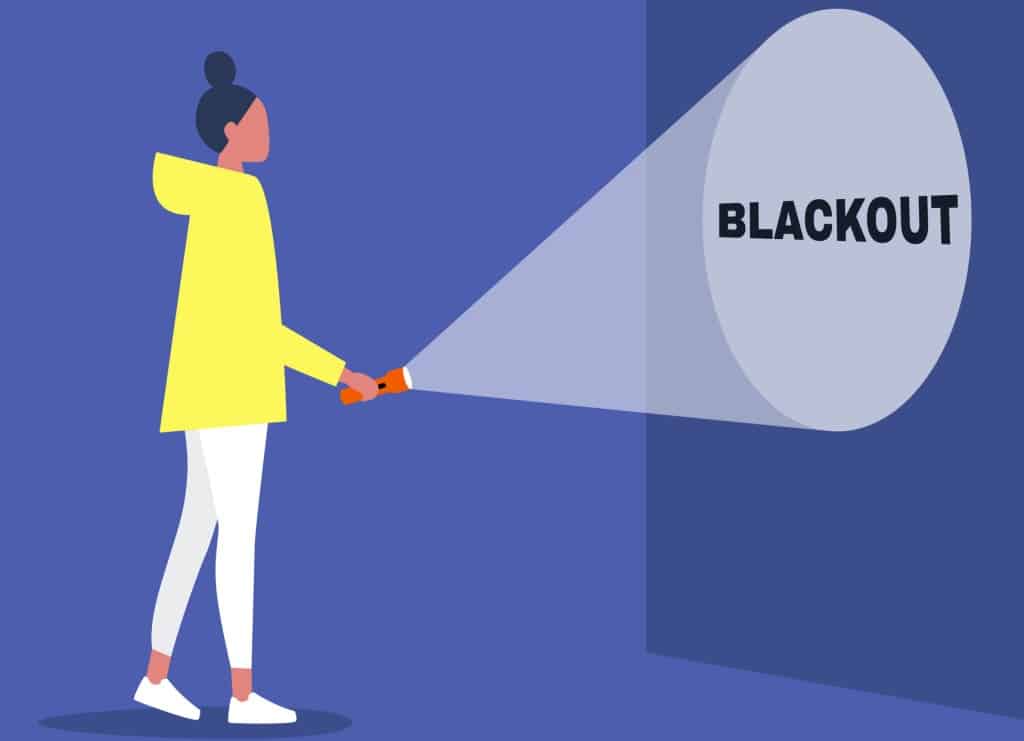
Nearly a year ago, following historically severe power outages across the state, DTE and Consumers Energy executives were called before a Michigan House committee hearing.
There, they admitted their companies had not done a sufficient job keeping lights on for their customers, apologized profusely, and said they would change.
“Our customers deserve to hold us accountable,” DTE Electric President and COO Trevor Lauer said in his testimony.
In the year since, have DTE and Consumers Energy demonstrated this newfound commitment to customer accountability?
As we will demonstrate, the answer is a flat-out “no.“
What is going on right now at the Michigan Public Service Commission, the regulatory body that oversees utilities and is trying to craft new rules to increase accountability is not encouraging.
Michigan’s two major utilities are attempting to direct the reform of regulations in a way that is less about holding them accountable and more about making sure they can get more money out of their customers. The utilities are pushing the MPSC for incentives – a financial bonus paid by their customers — to help motivate them to solve the reliability challenge.
The MPSC has been working on a proposal for a set of financial incentives and disincentives tied to how utilities perform on reliability.
The general idea is that an electric utility will be eligible for financial rewards if it hits targets for reducing the severity and frequency of outages or pay a financial penalty if it misses those targets.
Rewards for meeting basic standards
It has been in the works for months, but just recently, local government and community leaders, as well as advocacy groups across Michigan, took notice and registered complaints with the MPSC about the idea of rewarding utilities while their performance remains so poor.
Indeed, Michigan is one of the worst states for reliability in the country and is the absolute worst in terms of the amount of time customers are without power among its neighboring states in the Midwest, as federal data compiled in the Citizen Utility Board (CUB) of Michigan’s Utility Performance Report reveals.
“No other industry is rewarded for not meeting basic standards — and Michigan’s utilities should not be the exception,” the city of Ann Arbor said in its comments submitted to the MPSC opposing the incentive structure. Many stakeholders expressed similar sentiments.
The idea of giving financial rewards to already profitable publicly-traded companies for doing the job they are supposed to be already doing is raising eyebrows. But a closer look at this proposal makes the picture even worse.
As one of the state’s residential ratepayer advocates, CUB hears from customers who are literally powerless but also feeling powerless. After severe outages that cause power to go out for days, they often ask, “Are the utilities allowed to do this bad of a job at keeping the lights on?”
Indeed, there are minimum standards for reliability that, theoretically, the utilities are supposed to follow. Michigan administrative law lays out this floor for what we should expect from utilities in the Service Quality and Reliability Standards for Electric Distribution Systems.
DTE and Consumers Energy are out of step with those standards. For example, the standards require that no more than 6% of a utility’s customers may experience four or more sustained electric service interruptions annually. In 2022, over 7% and 9% of DTE’s and Consumers Energy’s customers experienced four or more sustained interruptions.
Crucially, the standards state that the MPSC may not authorize any utility to receive a financial incentive unless the utility in question exceeds all of the standards.
Considering that the utilities are not exceeding the standards, that seems like a good reason to stop at the idea of rewarding utilities. But DTE has told the MPSC that this rule could simply be waived.
Essentially, the company wants regulators to weaken their own rules so that it can reap rewards despite being out of compliance with what is supposed to be the minimum standard.
What would Michigan ratepayers be getting in return for waiving these basic expectations? DTE and Consumers Energy claim that financial incentives could push them to improve reliability. But they have never explained why the threat of penalties would not be motivation enough. Why do they need rewards instead of just penalties?
Setting the bar low
Yet another reason the MPSC should block these incentives is that the bar would be set low. It would be easy for utilities to collect their rewards without delivering significant improvements to minimize the amount of time the power is out for the average customer.
Take one of the most important metrics for reliability: the average length of outage per customer in a given year. Under the proposal as envisioned by the MPSC Staff, to qualify for an incentive, DTE and Consumers Energy would each need to ensure that the annual average length of outage per customer is no more than 116 minutes (excluding days where major events like severe storms trigger widespread outages).
Meeting that threshold of 116 minutes would improve their current performance, but it would only be an average performance by national standards and worse than that of neighboring states. For example, in 2021 (the year with the most recent data available), Wisconsin utilities had an annual average length of outage per customer of 85.1 minutes, and for Illinois utilities, the number was 61.8 minutes, compared to 177.9 minutes for Michigan utilities.
No wonder DTE and Consumers Energy are interested in the proposal. They stand to make money for doing a job that would be considered subpar for many of their peers around the Midwest.
The president and COO of DTE’s electric utility said customers should hold them accountable. The MPSC’s proposal does not represent accountability.
Customers should demand that the MPSC reject the idea of incentives for marginal improvements in performance and instead impose a system where utilities are penalized for not providing the electric reliability that customers elsewhere in the Midwest expect.

